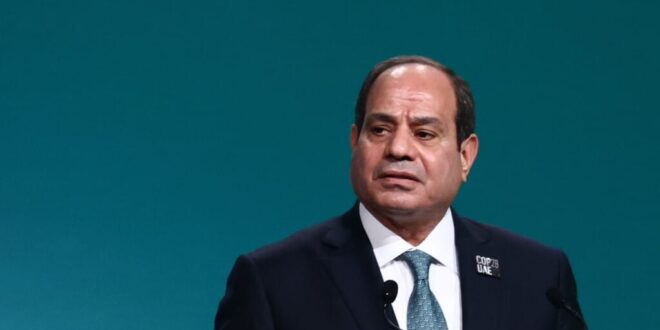The Israel Defense Force’s move last week into the southern Gaza city of Rafah has exploded in Egypt like a 2,000-pound bomb. Cairo has long been playing a double game, holding Hamas terrorists near while simultaneously trying to appear helpful to the United States and Israel.
Israel taking control of Rafah threatens Egypt’s ability to exploit the chaos in Gaza, both to generate profits for regime insiders and so Cairo can pose as an indispensable mediator and preserve access to U.S. money and arms. It’s not surprising Cairo is reacting hysterically.
The Egyptian Foreign Ministry harshly criticized Israel’s move and announced it would support South Africa’s case against Israel at the International Court of Justice. Egyptian pundits were unleashed across Arab media to talk about potential abrogation of the 1979 peace treaty with the Jewish state. Egypt’s anger was so great that it withheld aid from Gazans by refusing to send trucks through the Kerem Shalom crossing between Israel and Gaza.
But Cairo does not come to the table with clean hands. For the better part of the last two decades, Egypt has allowed weapons and money to flow to Hamas. In a 2013 interview, Hamas’s Moussa Abu Marzouk said that former Egyptian intelligence chief Omar Suleiman helped the terrorist group and opposed any effort to dismantle it.
Egyptian security officials have looked the other way while Hamas and other Palestinian militants dug tunnels on the Egyptian-Gaza border. That gave Cairo the ability to use the situation in Gaza as a tool for regional influence and to ensure Egypt’s role in the Palestinian-Israeli conflict would not be eclipsed by regional competitors such as Qatar and Turkey.
When Egyptian President Abdel Fattah El-Sisi took power a decade ago, he didn’t have good relations with Hamas. For years, Sisi fought militants in Sinai who were backed by Hamas with military training, weapons, and even media relations. But Cairo’s relations with Hamas improved after 2017, when Hamas released an updated charter disassociating itself from the Muslim Brotherhood.
Some elements close to the Sisi regime have benefited from Hamas control over Gaza and the Rafah crossing. Media reports indicate an Egyptian company run by one of Sisi’s close allies is making hundreds of millions of dollars by taxing Gazans fleeing the current conflict.
Adding to its financial incentive, the Sisi regime views the Rafah crossing as a crucial card in preserving Cairo’s regional standing. Holding it increases Egypt’s relevance to countries that want to send aid to the Palestinians and ensures Washington stays quiet about Egypt’s gross human rights violations so it can maintain a stable flow of U.S. assistance and weaponry. Egypt’s control of the Rafah crossing also forces Israel to rely on Egypt to keep Gaza quiet, in exchange for which Israel lobbies on Sisi’s behalf in Washington.
There are serious fears in Cairo that if Palestinians move to Sinai, they won’t leave — and, worse, could then use Sinai as a staging ground for attacks on Israel. Elements in the regime view this issue as integral to its survival: Domestic opposition in Egypt could destabilize Sisi’s rule if it appears Sinai is being given to Palestinians. This is especially important after the security apparatus peddled conspiracy theories about former Egyptian President and Muslim Brotherhood leader Mohamed Morsi giving Sinai to Palestinians.
While it may be hard for policymakers in Washington to come to terms with Egypt’s double game, it’s a painful conversation that must be had. No serious effort to turn the page on Hamas will yield the desired results without cutting this umbilical cord between the Sisi regime and Hamas.
Hence, the Biden administration should reconsider its naive acceptance of Egyptian concerns at face value. Moreover, the Biden administration should have pushed Egypt at the very least to accept women and children, to address fears of Palestinian militants spilling over to Sinai. Instead, the Biden administration allowed Arab governments working on behalf of Egypt to force the U.S. to stay clear of a critical solution to the humanitarian crisis in Gaza.
Strict monitoring of the Egyptian-Gaza border, either via Israel’s direct control or international troops, is a must for any successful effort to weaken Hamas. Otherwise, the whole Israeli effort will have been in vain, and Egyptian officials will simply go back to their old double game, juggling Hamas and Israel as the situation requires.
 Eurasia Press & News
Eurasia Press & News


